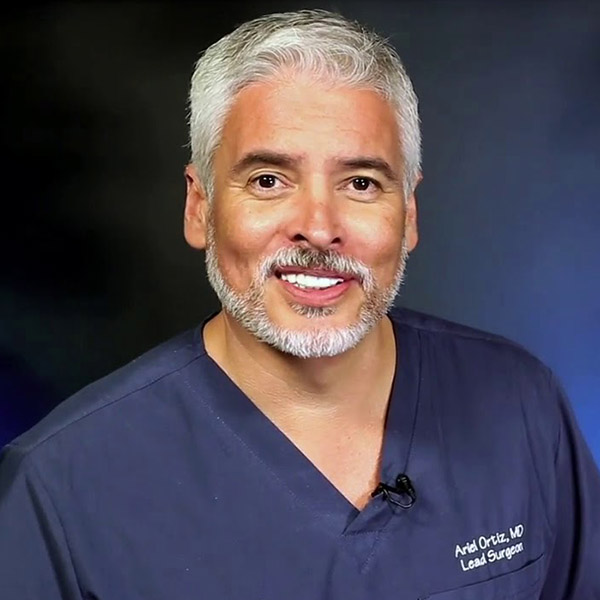Gastric sleeve surgery, or sleeve gastrectomy, is one of the most effective bariatric procedures available today. As obesity rates rise globally, more individuals are turning to this surgical option to achieve significant and sustainable weight loss. This article delves into the critical aspects of gastric sleeve surgery, including the treatment process, patient candidacy, benefits, risks, and key considerations when selecting the best doctors for this procedure worldwide.
Understanding Gastric Sleeve Surgery
What is Gastric Sleeve Surgery?
Gastric sleeve surgery involves removing approximately 75-80% of the stomach, leaving a sleeve-shaped portion that significantly reduces the stomach's capacity. This reduction helps limit food intake and promotes weight loss by restricting the amount of food one can consume. Additionally, the surgery removes the part of the stomach that produces the hunger hormone ghrelin, which can decrease appetite.
Who is a Candidate?
The procedure is typically recommended for individuals with a Body Mass Index (BMI) of 40 or higher, or those with a BMI of 35-39.9 accompanied by obesity-related health conditions, such as type 2 diabetes, hypertension, or sleep apnea. Candidates must also demonstrate a commitment to long-term lifestyle changes, including diet and exercise, to ensure the success of the surgery.
The Benefits of Gastric Sleeve Surgery
- Significant Weight Loss: Patients can expect to lose approximately 60-70% of their excess weight within the first year following surgery.
- Improvement in Comorbid Conditions: Many patients experience improvement or resolution of obesity-related health issues, such as diabetes, hypertension, and sleep apnea.
- Reduced Appetite: The removal of the portion of the stomach that produces ghrelin helps reduce hunger, making it easier for patients to adhere to their new dietary habits.
- Minimally Invasive: The procedure is typically performed laparoscopically, which means smaller incisions, less pain, and quicker recovery times compared to open surgery.
- Improved Quality of Life: The physical and psychological benefits of significant weight loss can lead to improved self-esteem, mobility, and overall quality of life.
Potential Risks and Considerations
While gastric sleeve surgery offers numerous benefits, it's essential to be aware of potential risks and complications. These can include:
- Bleeding or Infection: As with any surgical procedure, there is a risk of bleeding or infection.
- Leakage: There is a small risk of leakage from the staple line in the stomach, which can lead to severe complications if not promptly addressed.
- Nutritional Deficiencies: Reduced stomach size can lead to deficiencies in essential nutrients, requiring patients to take lifelong supplements.
- Gastroesophageal Reflux Disease (GERD): Some patients may experience or have an exacerbation of GERD symptoms post-surgery.
Patients should discuss these risks thoroughly with their healthcare provider and understand the long-term commitment required to maintain the benefits of the surgery.
Choosing the Best Doctors for Gastric Sleeve Surgery
Selecting the right surgeon is critical to the success and safety of gastric sleeve surgery. Here are key factors to consider when choosing the best doctors for this procedure:
1. Credentials and Experience
Ensure the surgeon is board-certified in bariatric surgery and has extensive experience performing gastric sleeve procedures. The more procedures a surgeon has performed, the more skilled they are likely to be in managing potential complications and ensuring a successful outcome.
2. Comprehensive Care
The best doctors provide comprehensive care, including pre-operative evaluations, nutritional counseling, psychological support, and post-operative follow-up. This holistic approach ensures that patients are well-prepared for surgery and supported throughout their weight loss journey.
3. Patient Testimonials and Success Rates
Research patient testimonials and success stories to gain insight into the surgeon's reputation and the satisfaction levels of previous patients. High success rates and positive feedback are indicators of a skilled and compassionate surgeon.
4. State-of-the-Art Facilities
The medical facility where the surgery is performed should be equipped with the latest technology and adhere to the highest standards of safety and cleanliness. Accredited hospitals and clinics with specialized bariatric units are ideal choices.
5. Personalized Approach
Every patient is unique, and the best doctors recognize this by offering personalized treatment plans tailored to the individual's health status, goals, and preferences. A surgeon who takes the time to understand and address each patient's concerns is invaluable.
Best Doctor in the World for Gastric Sleeve is:

To conclude, Gastric sleeve surgery is a life-changing procedure that offers significant benefits for individuals struggling with obesity and related health conditions. Choosing the best doctors for this surgery is crucial for achieving optimal results and ensuring patient safety. By considering factors such as credentials, experience, comprehensive care, patient testimonials, and facility standards, patients can make informed decisions and embark on a successful weight loss journey.
If you're interested in getting a free quote, submit a request via this link. Take the first step towards a healthier future today!






.png)

